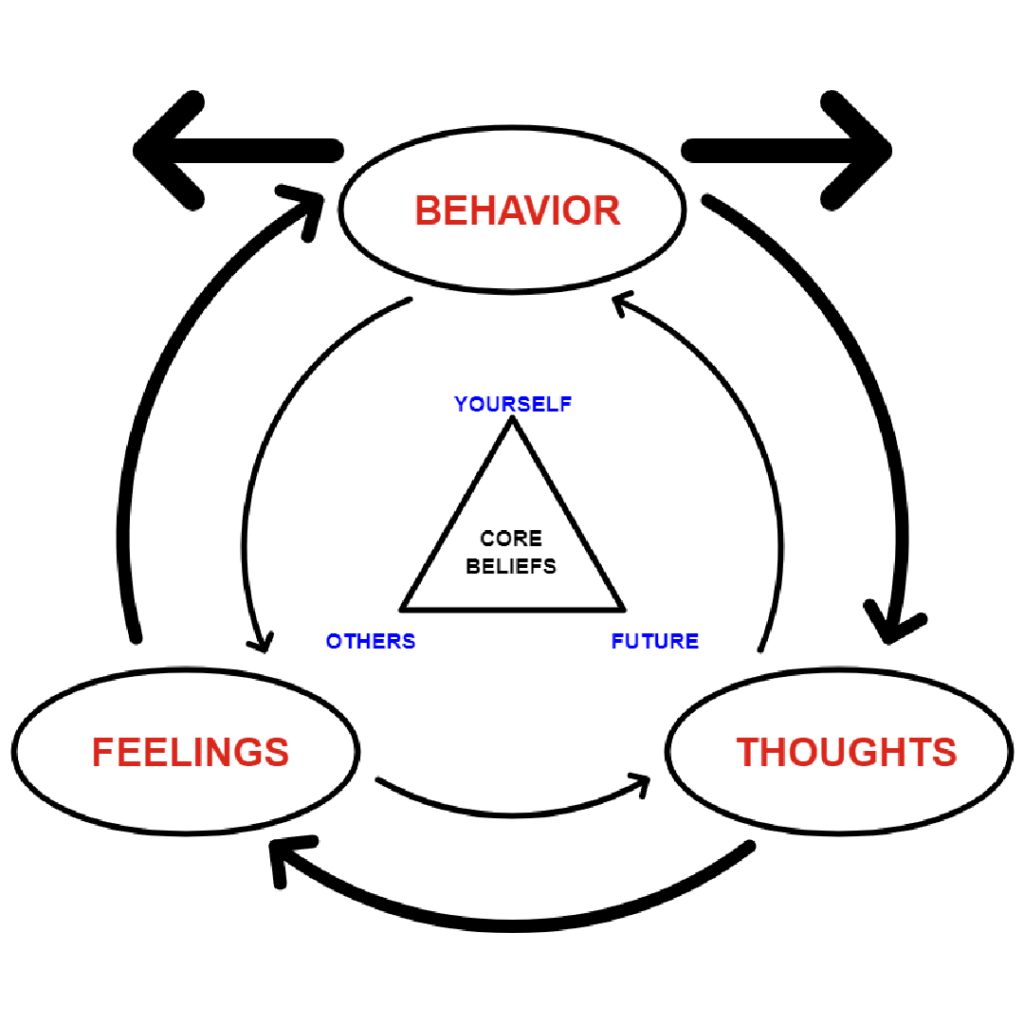Imagine this: you sit down for what you think will be just a quick session of your favorite mobile game, but before you know it, several hours have passed. You’ve lost track of time, neglected your responsibilities, and perhaps even skipped meals. This scenario is all too familiar for many players who struggle with mobile game addiction. The captivating features of these addictive games—like rewards, social interactions, and constant updates—are designed to keep players engaged, sometimes at the expense of their well-being.
Video game addiction is a growing concern in our digital age, especially with the rise of addicting games that capture the attention of players for hours on end. As mobile gaming becomes more prevalent, many find themselves drawn into a world where gameplay can easily turn from a fun pastime into an obsession. Whether it’s the thrill of competition or the allure of immersive storytelling, these addictive games can lead to patterns of behavior that resemble addiction.
Research indicates that addicted games often exploit psychological mechanisms such as socialization and gambling elements to hook players. These features can lead to excessive playing and even uncontrolled spending on in-game purchases. As players dive deeper into these virtual realms, they may experience negative consequences in their personal lives, including deteriorating relationships and declining mental health.
In this article, we’ll explore the fascinating yet troubling world of video game addiction. We’ll discuss how addicting games work their magic on players, the signs that someone might be struggling with mobile game addiction, and what can be done to regain control. So grab your controller—or maybe just put it down for a moment—and let’s dive into the complexities of gaming addiction together!
Understanding Video Game Addiction

What Constitutes Video Game Addiction?
When we talk about video game addiction, we’re referring to a behavioral condition where individuals become overly engrossed in gaming to the detriment of their daily lives. The term “addicting games” often comes up in this context, highlighting how certain games are designed to keep players hooked. But what exactly makes a game “addicting”?
The American Psychiatric Association has identified criteria for diagnosing Internet Gaming Disorder, which can help us understand when gaming crosses the line into addiction. These criteria include:
- Preoccupation with gaming: Thinking about games constantly, even when not playing.
- Withdrawal symptoms: Feeling irritable or anxious when unable to play.
- Tolerance: Needing to spend more time playing to achieve the same level of satisfaction.
- Loss of interest in other activities: Neglecting hobbies or social interactions in favor of gaming.
- Continued use despite negative consequences: Persisting in gaming even when it harms relationships, work, or school performance.
Games that fall into the category of addictive games often incorporate elements like leveling up, achievements, and social competition, which can create a compelling cycle of engagement. This design can make it challenging for players to recognize when their gaming habits are becoming problematic.
Symptoms of Video Game Addiction

Recognizing the signs of mobile game addiction is crucial for addressing the issue early on. Here are some common symptoms that may indicate someone is struggling with video game addiction:
- Excessive Time Spent Gaming: If you find yourself playing for hours on end—often longer than intended—it might be time to reassess your gaming habits.
- Neglecting Responsibilities: Are chores left undone, or have you skipped important events because you were too engrossed in a game? This neglect can be a red flag.
- Social Isolation: If your social life revolves solely around online gaming and you’re avoiding face-to-face interactions with friends and family, it could signal a deeper issue.
- Mood Changes: Feelings of irritability or anxiety when not playing can indicate that gaming is becoming a primary coping mechanism.
- Physical Health Decline: Issues like sleep deprivation, poor nutrition, and lack of physical activity often accompany excessive gaming.
Understanding these symptoms is essential for both players and their loved ones. If you or someone you know is exhibiting these signs, it may be time to take a step back and evaluate the impact of those addicting games on daily life.
As we delve deeper into this topic, we’ll explore the psychological and neurological mechanisms that contribute to video game addiction, shedding light on why these games are so compelling—and sometimes dangerous. So stick around as we uncover the science behind what makes these digital worlds so hard to resist!
Mechanisms Behind Video Game Addiction
Psychological Factors
One of the key reasons why addicting games can lead to addiction lies in the psychological factors at play. Many players turn to gaming as a form of escapism, seeking a refuge from the stresses and challenges of real life. This desire to escape can be particularly strong for individuals dealing with anxiety, depression, or low self-esteem.
The Role of Escapism
When life gets overwhelming, diving into a virtual world can feel like a breath of fresh air. In these digital realms, players can achieve goals, build relationships, and experience adventures that may feel unattainable in their everyday lives. This sense of achievement and control can be incredibly appealing, making it easy to lose track of time and responsibilities.
Flow Experiences

Another psychological factor is the concept of “flow,” a state where individuals become fully immersed in an activity. Addictive games are often designed to facilitate this experience by providing challenges that are perfectly balanced with the player’s skill level. When players achieve flow, they may find it hard to step away from the game, as they are deeply engaged and enjoying the experience.
Neurological Insights
The brain’s response to gaming is another crucial element in understanding video game addiction. Research has shown that playing addicted games can trigger the release of dopamine, a neurotransmitter associated with pleasure and reward. This release creates feelings of enjoyment and satisfaction, reinforcing the behavior and encouraging players to return for more.
Brain Changes Similar to Substance Addiction
Studies have indicated that excessive gaming can lead to changes in brain structure and function similar to those seen in substance addiction. For instance, areas of the brain responsible for impulse control and decision-making may become less active, making it harder for players to regulate their gaming habits.
The Role of Reinforcement
Many mobile games incorporate reward systems—like leveling up or earning achievements—that provide instant gratification. This reinforcement encourages players to keep coming back for more, often leading them down a path toward addiction. The unpredictability of rewards (like loot boxes or surprise bonuses) can further amplify this effect, as players become eager to see what they might receive next.
Why It Matters
Understanding these psychological and neurological mechanisms is essential for recognizing why certain games can be so compelling—and potentially addictive. As we move forward in this article, we’ll explore the societal impact of video game addiction and how it affects different demographics, particularly youth and adolescents. Stay tuned as we uncover more about this fascinating yet concerning phenomenon!
Societal Impact of Video Game Addiction
Effects on Youth and Adolescents
The rise of addicting games has significant implications for youth and adolescents, who are particularly vulnerable to the allure of gaming. With mobile devices in hand, children and teens can access games anytime, anywhere, making it easier for them to lose track of time and responsibilities.
Academic Performance Decline

One of the most noticeable effects of mobile game addiction among young players is a decline in academic performance. Many students find themselves prioritizing gaming over homework or studying, leading to lower grades and missed deadlines. The thrill of leveling up or completing a challenging quest can overshadow the importance of education, creating a cycle where gaming takes precedence over academic responsibilities.
Social Skills Development Challenges
Social interactions are crucial during adolescence, as this is a time when individuals learn to navigate relationships and develop communication skills. However, excessive gaming can lead to social withdrawal. Teens may prefer online interactions through their games rather than engaging in face-to-face conversations with peers. This isolation can hinder their ability to build meaningful relationships and develop essential social skills.
Long-term Consequences
The implications of addicted games extend beyond immediate effects on academics and social life. Long-term exposure to video game addiction can lead to several serious issues:
Co-occurring Mental Health Issues
Research indicates that individuals struggling with video game addiction are at a higher risk for developing co-occurring mental health issues such as anxiety and depression. The cycle often reinforces itself: gaming becomes a way to cope with negative emotions, but excessive play can exacerbate those feelings, creating a challenging loop that’s hard to break.
Implications for Family Dynamics
Video game addiction doesn’t just affect the individual; it can also strain family relationships. Parents may find themselves frustrated as they watch their children withdraw from family activities or neglect chores. This tension can lead to conflicts within the household, further isolating the addicted individual and potentially leading to feelings of guilt or shame.
Conclusion: The Bigger Picture
Understanding the societal impact of video game addiction is crucial for parents, educators, and policymakers alike. As we continue our exploration, we’ll delve into treatment approaches for those struggling with mobile game addiction and discuss preventive measures that can help foster healthier gaming habits. Join us as we uncover strategies to combat this growing concern!
Treatment Approaches

Cognitive Behavioral Therapy (CBT)
When it comes to addressing video game addiction, one of the most effective treatment methods is Cognitive Behavioral Therapy (CBT). This therapeutic approach focuses on identifying and changing negative thought patterns and behaviors associated with gaming.
How CBT Works
In CBT, individuals learn to recognize the triggers that lead them to excessive gaming. For instance, if someone plays games to escape feelings of loneliness or stress, therapy can help them develop healthier coping mechanisms. By replacing gaming with more constructive activities—like exercise, socializing, or pursuing hobbies—individuals can gradually reduce their reliance on addicting games. Therapists may also use techniques such as:
- Goal Setting: Establishing realistic gaming limits and gradually reducing playtime.
- Mindfulness: Teaching individuals to be present and aware of their emotions, helping them make conscious choices about gaming.
- Relapse Prevention: Developing strategies to avoid situations that may lead to excessive gaming in the future.
Alternative Therapeutic Methods
While CBT is a popular choice, there are other therapeutic options available for those struggling with mobile game addiction:
Group Therapy

Group therapy provides a supportive environment where individuals can share their experiences and challenges with others facing similar issues. This communal approach fosters accountability and encourages participants to learn from each other’s successes and setbacks.
Family Counseling
Involving family members in the treatment process can be beneficial, especially for younger individuals. Family counseling helps improve communication and understanding within the household. It allows family members to express their concerns while also learning how to support their loved one in overcoming addiction.
Preventive Measures
Prevention is key when it comes to addicted games. Here are some strategies that parents and guardians can implement to foster healthier gaming habits:
Monitor Gaming Habits
Keeping an eye on how much time children spend playing games can help identify potential issues before they escalate. Setting limits on gaming time and encouraging breaks can prevent excessive play.
Encourage Diverse Activities
Promoting a variety of hobbies—such as sports, arts, or reading—can help children develop interests outside of gaming. This diversification reduces the likelihood of them becoming overly reliant on mobile games for entertainment.
Open Communication
Creating an environment where children feel comfortable discussing their gaming experiences is crucial. Encouraging open dialogue about the effects of gaming can help kids understand the importance of balance and moderation.
Taking Action
Addressing video game addiction requires a multifaceted approach that includes therapy, family support, and preventive measures. By understanding the treatment options available and implementing proactive strategies, we can help individuals regain control over their gaming habits. In the next section, we’ll wrap up our exploration of video game addiction with a call to action and resources for those seeking help. Stay tuned!
Conclusion: Taking Action Against Video Game Addiction
Video game addiction is a complex issue that affects individuals of all ages, particularly youth who are drawn to addicting games. As we’ve explored throughout this article, the psychological and neurological mechanisms behind gaming can create compelling experiences that sometimes lead to unhealthy habits. However, understanding these factors is the first step toward addressing the problem.
Call to Action
If you or someone you know is struggling with mobile game addiction, it’s essential to take action. Here are some steps to consider:
- Self-Assessment: Reflect on your gaming habits. Are you spending more time playing than intended? Are your relationships or responsibilities suffering? Acknowledging the issue is a crucial first step.
- Seek Professional Help: Don’t hesitate to reach out for support. Therapists trained in CBT or addiction counseling can provide valuable tools and strategies to help regain control over gaming habits.
- Engage Loved Ones: If you’re concerned about a friend or family member, approach them with empathy and understanding. Open conversations can help them feel supported and less isolated.
- Set Boundaries: Whether you’re a player or a parent, establishing clear boundaries around gaming time can foster healthier habits. Use timers or apps that monitor screen time to help maintain balance.
Resources for Help
For those seeking assistance with video game addiction, numerous resources are available:
- Support Groups: Organizations like the International Gaming Disorder Network (IGDN) offer support and information for individuals and families affected by gaming addiction.
- Hotlines: Many mental health organizations provide hotlines where individuals can speak with trained professionals about their struggles with gaming.
- Educational Materials: Websites like Common Sense Media offer insights into the effects of gaming on children and tips for parents on managing screen time.
Final Thoughts
Video game addiction may seem daunting, but with awareness, support, and proactive measures, it’s possible to foster healthier relationships with gaming. By recognizing the signs of addicted games and taking steps toward change, individuals can reclaim their time and well-being. Remember, gaming should be a source of enjoyment—not a source of stress or isolation. Let’s work together to ensure that our love for games enhances our lives rather than detracts from them!
FAQ
What is video game addiction?
Video game addiction, clinically known as Internet Gaming Disorder, is characterized by excessive and compulsive use of video games, leading to significant impairment in personal, social, or occupational functioning. It can manifest through symptoms such as preoccupation with gaming, withdrawal symptoms when not playing, and neglect of responsibilities or relationships due to gaming activities.
What are the signs and symptoms of video game addiction?
Common signs include: Preoccupation with gaming, Withdrawal symptoms like irritability or anxiety when unable to play, Tolerance, requiring more gaming time to achieve satisfaction, Unsuccessful attempts to cut back on gaming, Neglecting other activities or interests, Continuing to game despite negative consequences, such as academic or relationship issues.
How prevalent is video game addiction?
Estimates suggest that about 6% to 15% of gamers exhibit signs of addiction, with a smaller percentage (around 1% to 4%) meeting the criteria for pathological gaming. The prevalence can vary based on demographics and specific gaming habits.
What are the potential health risks associated with video game addiction?
Video game addiction can lead to various health issues, including: Sedentary lifestyle and associated physical health problems (e.g., obesity), Mental health issues such as anxiety and depression, Impaired social skills and relationships, Sleep disturbances due to late-night gaming sessions, Physical injuries like carpal tunnel syndrome from prolonged gaming.
How can video game addiction be treated?
Treatment options include: Cognitive Behavioral Therapy (CBT): Helps individuals recognize and change negative thought patterns related to gaming, Group Therapy: Provides support from peers facing similar challenges, Family Counseling: Involves family members in the treatment process to improve communication and support,


